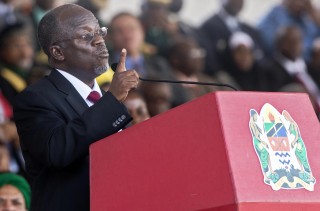“They tell you what they want, show you what they want you to see / But they don’t let you know what’s really going on / Make it look like a lotta stealing going on / Boy them cops is killas in my home – Lil Wayne
What is rap or rap music?
Dictionary.com defines “rap music” as a style of popular music, developed by disc jockeys and urban blacks in the late 1970s, in which an insistent, recurring beat pattern provides the background and counterpoint for rapid, slangy, and often boastful rhyming pattern glibly intoned by a vocalist or vocalists.
The music genre has been a canvas for many, especially blacks, to express their grievances with leadership. If rap music appears to be violent or attacking in nature when compared to other kinds of music, it is because rap stems from a culture that has been seeped in the fight against political, social, and economic oppression.
Bearing this in mind and of course the all-encompassing umbrella that democracy allows citizens to express themselves, it’s kind of intriguing when African leaders spend more time dealing with critics than actually working. I mean, if they stuck to the purpose of their office in the first place, I believe the voices of the critics would be less audible.
Now, meet President John Pombe Magufuli of Tanzania. The man attributed with the popular #WhatWouldMagufuliDo trend that swept across social media with the depiction of how change had finally come to the East African nation with a population of about 57 million people.
Well that trend is currently changing
https://twitter.com/MariaSTsehai/status/846252286393405440
And if you are following the trend as it unfolds, Tanzanians are pulling punches at the “Man of the year 2016”
#ReportersUnderMagufuliEra 500mil USD from Tanzania's budget to help cover health insurance in China
— Lubasha Jr (@MarekaMalili) March 27, 2017
https://twitter.com/michaelmsafi/status/846260015140888576
#VATICAN Pope Francis congratulated John Pombe Magufuli for his efforts to eradicate corruption and poverty . #ReportersUnderMagufuliEra
— Tundu Antiphas Lissu (@TunduLissu) March 27, 2017
The arrest of popular rapper, Nay wa Mitego (real name: Emmanuel Elibariki) for a song deemed to be insulting the Mr. Magufuli’s administration is the latest in a string of attempts by the President to clamp down on the freedom of speech.
The song sang in Swahili, titled “Wapo” which has not made airplay on traditional media platforms such as radio and TV, emerged last week and was widely shared on social media.
One line in it asks: “Is there still freedom of expression in the country?”
Another lyric in the song goes: “Who are you now? Don’t you want to listen to advice? Don’t you want criticism?”
The president has been increasingly accused of being impulsive in his government style by critics and takes offence at criticism as Elsa Buchanan of the International Business Times writes on the Tanzanian president’s warning to the media that they ‘don’t have as much freedom’ as they think – citing a case where he accused media owners of having exaggerated an incident in which a plainclothes security officer pointed a gun at sacked information minister Nape Nnaye to stop him from addressing the media.
Insulting the president was made a criminal offense in Tanzania under a cybercrimes law passed in 2015, punishable by up to three years in jail, a fine of around $3,000, or both.
Nay wa Mitego’s arrest is just one of many that Magufuli has used to push forward his views on freedom of expression.
In September 2016, a lecturer was arrested on the charge of insulting Magufuli on the WhatsApp platform. In October 2016, a duo – musician Mwana Cotide (real name: Fulgency Mapunda) and music producer Mussa Sikabwe – were arrested for allegedly producing, singing and distributing a song called ‘Dikteta Uchwara’ (Petty Dictator) that contained “seditious and offensive” content.
Since his victory during the October 2016 election, Magufuli has shut down newspapers, banned opposition rallies, switched off live broadcasts of parliamentary sessions and used every inch of his power to silence critics
It is pertinent to note, however, that without the critics in his ear, Magufuli may live a trumped up experience of how he’s the best thing since sliced bread for Tanzania, but would leave a legacy that is quickly covered by dust in the wake of his eventual leave from office come whatever years he remains as president.
Really, though, it just makes Mr. Magufuli a wannabe dictator.
Silencing media and forms of expression as a means or guise that one is working is a theory that falls flat in the face of the fact that the same media is what shapes public policies, its opinions and is core to the democratic process.








